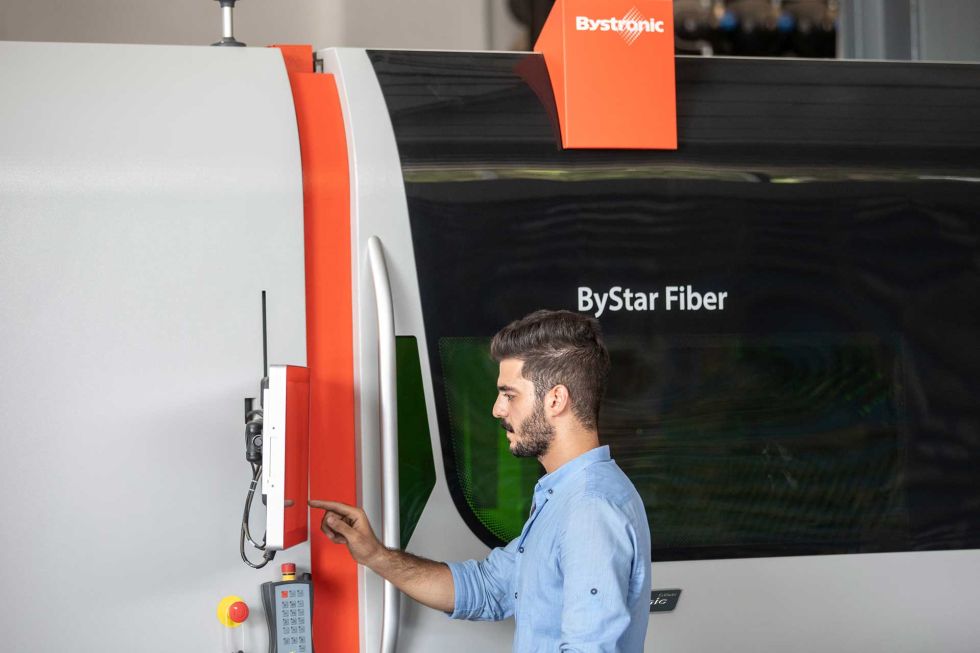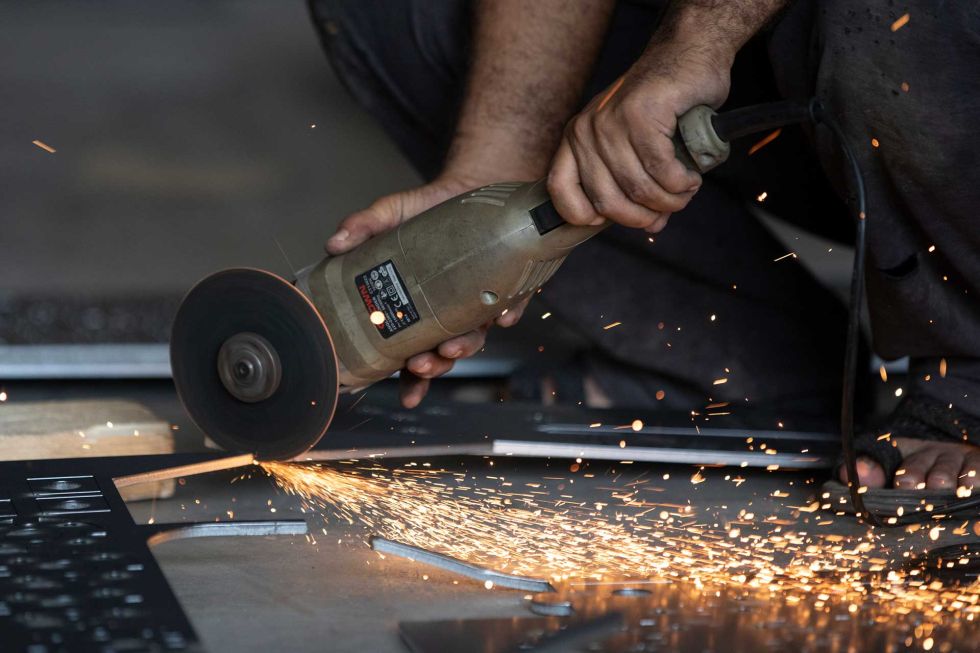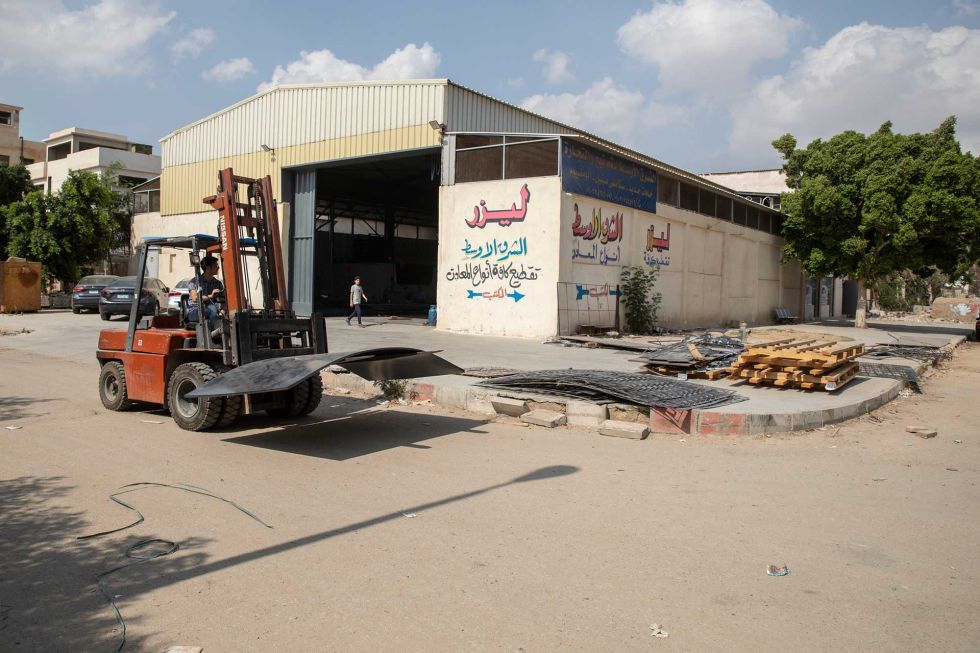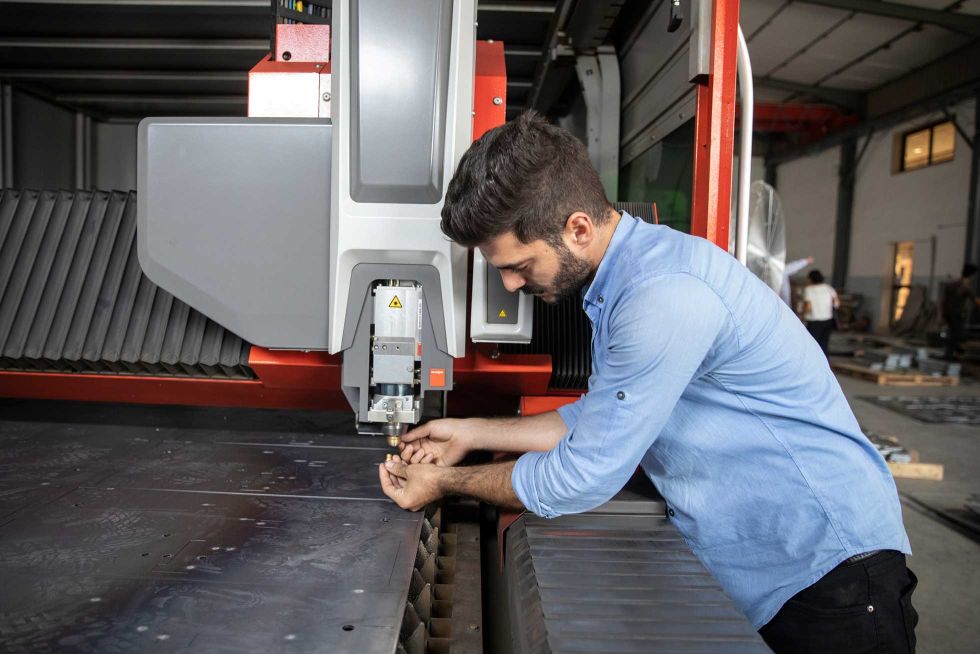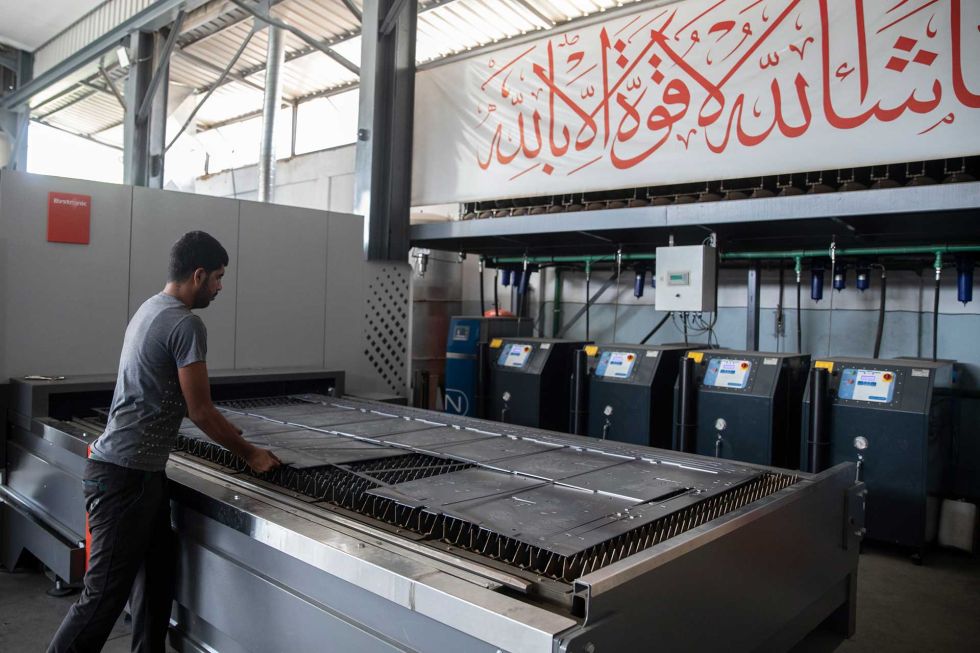News Most powerful laser in the Middle East
Syria 2014: civil war is raging, the opposition and the government are engaged in a fierce battle, and countless families are losing their homes. The Kazhlawi family, originally from Homs, decides to leave their home and sets off for the Egyptian capital Cairo. There, the five brothers Mahmoud, Abdel Sater, Muhammad, Abdel Moneim and Fadi venture a new start. They found a company specialising in laser cutting of metals.
"Sharq Awsat's latest acquisitions are the first machines to operate in the Middle East with a capacity of ten kilowatts. Their productivity is two or three times that of the machines used by competitors."
Muhammad Bakir, Bystronic agent in Egypt
ByStar sets benchmark
Soon after, a factory was built on an area of 500 square metres in the "City of the 10th Ramadan", an industrial area about 70 kilometres from Cairo. Business started well, demand increased constantly. To meet it, a new machine was needed. Bystronic was chosen because Swiss quality enjoys a good reputation in the Middle East. The new machine arrived, demand continued to climb - and the brothers ordered two more machines from Switzerland, the ByStar Fiber 3015 and the ByStar Fiber 4020, shortly afterwards.
Laser cutting under extreme conditions
"Sharq Awsat's latest acquisitions are the first machines to operate in the Middle East with an output of ten kilowatts. Their productivity is two or three times higher than the machines the competition is working with," says Muhammad Bakir, maintenance manager at Deals, the Bystronic representative in Egypt.
Another novelty in the region: with the BeamShaper, Bystronic provides for the first time outside the European market a technology that can cut steel sheets up to 30 millimetres thick. A decisive competitive advantage for the five brothers.
The laser cutting machines from Sharq Awsat work under extreme conditions: In Egypt, the thermometer sometimes climbs to well over 40 degrees Celsius. At such temperatures, conventional cutting machines are at risk of total failure. Thanks to a second cooling circuit, the heat leaves the machines cold. And if production should ever come to a standstill, the service people are quickly on the spot: "If we need spare parts, we get them very quickly and much cheaper than from other suppliers," says Fadi.
